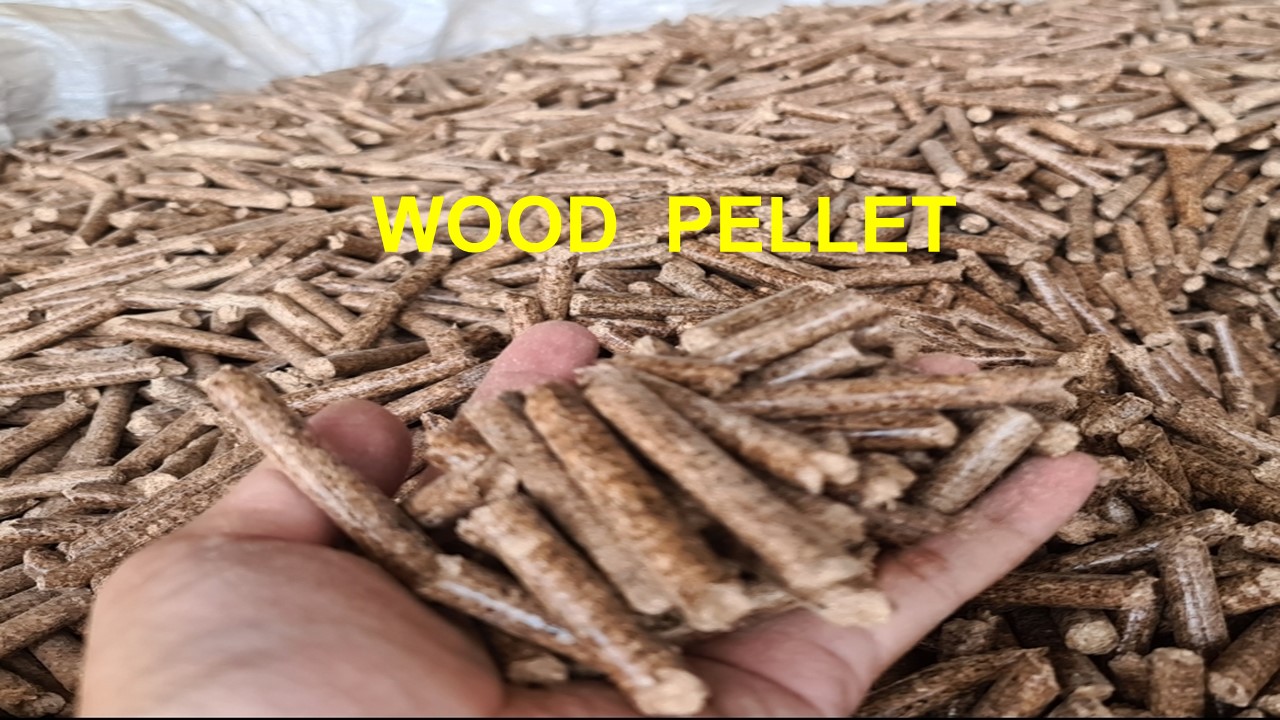WOOD PELLET


Wood Pellet fuels are biofuels made from compressed organic matter or biomass. Pellets can be made from any one of five general categories of biomass : industrial waste and co-products, food waste, agricultural residues, energy crops, and virgin lumber. Wood pellets are the most common type of pellet fuel and are generally made from compacted wood dust and related industrial wastes from the milling of lumber, manufacture of wood products and furniture, and construction. Pellets are categorized by their heating value, moisture and ash content, and dimensions. They can be used as fuels for power generation, commercial or residential heating, and cooking. Pellets are extremely dense and can be produced with a low moisture content that allows them to be burned with a very high combustion efficiency.
High-efficiency wood pellet stoves and boilers have been developed in recent years, typically offering combustion efficiencies of over 85%. The newest generation of wood pellet boilers can work in condensing mode and therefore achieve 12% higher efficiency values.
Emissions and volatile organic compounds from pellet burning equipment are in general very low in comparison to other forms of combustion heating. A recognized problem is the emission of fine particulate matter to the air, especially in urban areas that have a high concentration of pellet heating systems.
WOOD PELLETS ADVANTAGES :
Renewable : Wood pellets have a decided advantage over fossil fuels: They are produced from renewable materials such as wood shavings and saw dust. Among the most richly forested countries in Indonesia.
Sustainable : Investment in a new heating system is expensive and therefore should be profitable in the long run. Severe rise in prices and unpredictable risks characterize the market for fossil fuels. In comparison, the supply of wood from domestic forests is much more secure and less volatile.
Cost-effective : The economic advantages of wood pellets are striking: Compared to fossil oil or natural gas, you can save about half of your expenses on fuel.
Comfortable : Wood pellet central heating boilers are known for high user comfort, easy operation and cleanliness. The fuel is delivered by silo truck and automatically conveyed from the storage to the boiler. Ignition, control, boiler cleaning and de-ashing happen in a fully automatic manner.
Eco-friendly : Since wood absorbs the same quantity of CO2 from the atmosphere whilst growing as is emitted during combustion, wood fuels do not contribute to the concentration of carbon dioxide in the atmosphere. Even if one takes the deployment of fossil fuels for production and transport of wood pellets into account, the result is a CO2-reduction of over 95 % compared to the use of heating oil.
Current comparison of costs : One great advantage of wood pellets are the low costs compared to other fuels. No other fuel with the same degree of user comfort can keep pace with wood pellets in terms of cost-efficiency.
Long-term comparison of costs of various fuels : The long-term price development of various energy sources shows the advantages of wood pellets: Ecological heating is economically attractive
WOOD PELLET USAGE :
Home heating, heat supply : They can be used in pellet heating stove and furnace. They can connect with pipes, boilers, and heating radiators to build a heating system at home. Wood pellets are clean, with little ash residues.
Industrial boiler fuels : Wood pellets are used in industrial boilers as an alternative for coal and natural gas. Conventional fuels usually have the problems of pollution or high cost. Wood pellets are carbon neutral, with little sulfur or nitrogen content.
Thermal and gasification power generation : Wood pellets also serves as fuel for thermal power generation and gasification power generation. It has high heat value and low pollutant emission. Many countries have carried out policies to encourage biomass power generation.
WOOD PELLET SPECIFICATION :
Moisture : Max 12% , Packing : Jumbo bag / PP bag , Size Length : 3 -5 cm ,
Dimesnsion : 8 – 9 mm , Gross Calorific : 4370 – 4700 / KCAL per Kg
Color : Wood colour , Certificate : Fumigation, Phytosanitary, Origin country.
Capacity : 2000 Metric Tons. , MOQ : 40’HC / 25.5 Tons.
Shipping : FOB or CIF , Origin : Indonesia.

